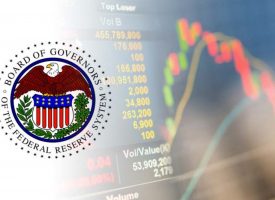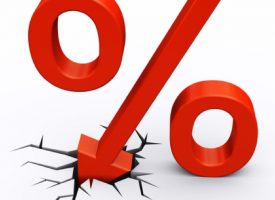With the Dow near 18,000 and crude oil plunging to $51, today a legend in the business sent King World News a powerful piece about a major conflict that is now pushing the world closer to war and how it is impacting a key global market.
From Art Cashin's notes: The Yemen Challenge – This week's Economist has an excellent article on potential complications related to the Saudi airstrikes in Yemen. Here are a few bits:
SAUDI ARABIA’S recently enthroned King Salman pulled off a striking diplomatic coup last month when he gathered a ten-country coalition of Sunni states to bomb the upstart Shia rebels in Yemen known as Houthis. Even Qatar and the United Arab Emirates, rivals in regional politics, put aside their differences to confront a perceived Iranian proxy. Egypt sent planes and ships. Countries as far apart as Morocco and Pakistan pledged help, too.
Saudi Arabia is usually shy about speaking loudly and taking part in military action. Its uncharacteristic assertiveness may be a sign of the influence of the new king’s son and defence minister, Muhammad, who is in his 30s. Sunni states no doubt want to draw a line against further encroachment by Iran, which exerts strong influence in Iraq, Syria and Lebanon. But Saudi Arabia, which treats the Arabian peninsula as its backyard, is particularly sensitive about trouble in Yemen.
Politically nimble as King Salman’s team may be, the real test will be the outcome of the military action and whether it can stabilise his poor, tumultuous southern neighbour. Saudi Arabia’s oil wealth and custodianship of the two holiest sites in Islam, Mecca and Medina, give it a central place in the Sunni world. But the kingdom also has a reputation as a blunderer. Its attempt to unseat Syria’s president, Bashar Assad, by supporting rebel groups has been stymied by the backing that Iran and its Lebanese ally, Hizbullah, gives him.
The conclusion is anything but upbeat:
A land intervention is a different matter. The Houthis are renowned as fearsome fighters. And any ground force might also have to contend with al-Qaeda and other jihadist groups that have expanded amid Yemen’s chaos. Who else would offer ground forces? Egypt, which has a large army, still remembers Yemen as its “Vietnam” from the days it fought there in the 1960s. Pakistan is reluctant to be drawn into a war when it is fighting its own militants, the Taliban; it also fears exacerbating its own Shia-Sunni troubles.
Ultimately Yemen will have to be pacified by a political agreement. King Salman seems bent on reinstalling Abd Rabbo Mansour Hadi, the internationally backed president and, it is said, on excluding the Houthis. Saudi imams are said to be under orders to denounce them as “enemies of Islam”. The trouble is that Yemen’s Zaydis represent only about 40% of its population, so the Houthis will be hard to exclude. Mr Hadi, moreover, is discredited among many Yemenis, and has fled the country. As America has discovered in recent years, ending a war is harder than starting it. Saudi Arabia’s enemies would not be sorry to see it bogged down: Iranian comments on social media already talk of Yemen being the “Saudis’ Afghanistan”.
If the author's assessment is correct, the Yemeni situation could devolve into a more fractious Middle East. Oil will be the barometer.
Consensus – As noted yesterday, the run-up to tax day (April 15) traditionally sees somewhat negative pressure on U.S. equities. New York Fed's Dudley may be involved in some Q&A as trading begins. Stick with the drill – stay wary, alert, and very, very nimble. ***ALSO JUST RELEASED: All Eyes Are On This Key Global Market Right Now CLICK HERE.
© 2015 by King World News®. All Rights Reserved. This material may not be published, broadcast, rewritten, or redistributed. However, linking directly to the blog page is permitted and encouraged.
The audio interviews with David Stockman, James Turk, Rick Rule, Dr. Paul Craig Roberts, Bill Fleckenstein, Dr. Philippa Malmgren, Egon von Greyerz, Eric Sprott, Robert Arnott, Gerald Celente, Michael Pento, Marc Faber, Felix Zulauf, Andrew Maguire, John Mauldin, John Embry and Rick Santelli are available now. Other recent KWN interviews include Jim Grant — to listen CLICK HERE.







